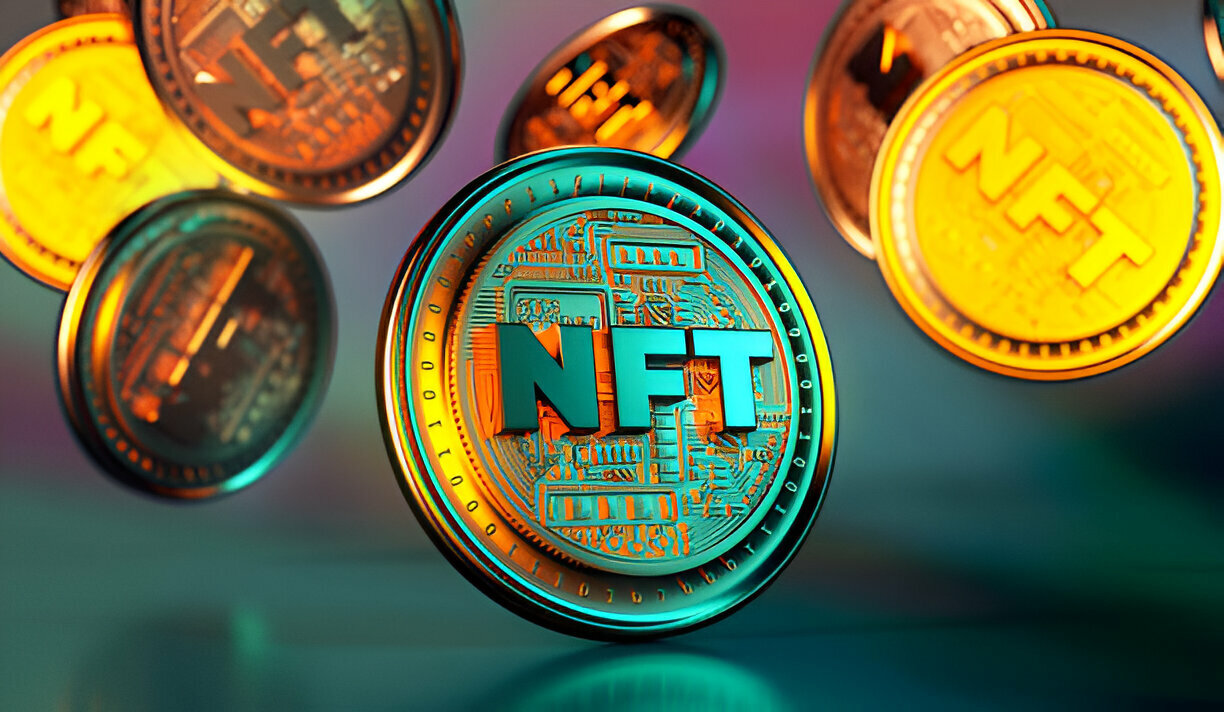Regulation and Crypto: The Global Landscape

Cryptocurrency has gained huge popularity recently, offering both big opportunities and challenges. As these digital currencies become part of the global financial system, clear and effective regulation is crucial. Here’s a look at the current state of cryptocurrency regulation around the world and its potential impact on the future of crypto.
A Mixed Regulatory Landscape
Unlike traditional financial tools, cryptocurrencies are mostly unregulated. This lack of standard rules creates a complicated situation for investors, businesses, and governments. Here’s how different countries are handling it:
- Restrictive Measures: About 22% of countries have strict regulations or bans on crypto trading and use. For example, China has cracked down on crypto mining and trading to ensure financial stability.
- Cautious Observation: Around 48% of countries are taking a wait-and-see approach. They are watching developments and conducting research before creating regulations, learning from other countries’ experiences.
- Embracing Innovation: About 21% of countries are welcoming cryptocurrencies and working on effective regulations. The European Union’s MiCA framework, implemented in 2023, is a major step in regulating crypto assets. Singapore is also a hub for crypto innovation with supportive regulations for blockchain startups.
Key Regulatory Focus Areas
Although approaches differ, several key areas are the focus of global cryptocurrency regulation:
- Anti-Money Laundering (AML) and Combating the Financing of Terrorism (CFT): Cryptocurrencies’ potential anonymity raises concerns about illegal activities. Regulators are implementing Know Your Customer (KYC) and AML/CFT rules for crypto exchanges to enhance transparency and combat financial crime.
- Consumer Protection: The volatile nature of cryptocurrencies poses risks for investors. Regulators are exploring ways to protect consumers from scams, misleading marketing, and sudden price changes.
- Market Stability: The rapid growth of the crypto market raises concerns about risks to the traditional financial system. Regulators are considering measures to oversee crypto exchanges, manage potential bubbles, and prevent destabilizing effects.
- Taxation: Deciding how to tax cryptocurrencies is an ongoing debate. Clear tax rules provide clarity for investors and generate revenue for governments.
Challenges of Global Coordination
Cryptocurrencies operate across borders, making it hard for any single country to regulate them effectively on its own. International cooperation is essential to create a level playing field and prevent regulatory loopholes.
The fast development of the crypto industry complicates regulation further. New technologies and financial products emerge constantly, requiring regulators to stay flexible and adapt their rules.
The Future of Crypto Regulation
While current crypto regulation is fragmented, there is a trend toward more global coordination and standardization. Here’s what the future might hold:
- International Cooperation: International bodies like the Financial Stability Board (FSB) are likely to encourage collaboration between national regulators. Establishing common standards for AML/CFT, consumer protection, and market oversight will be crucial for a stable global crypto ecosystem.
- Regulatory Sandboxes: Creating regulatory sandboxes, where innovative crypto businesses can operate under controlled supervision, could be valuable. This allows regulators to observe new technologies and adapt their rules while reducing risks for users.
- Technological Solutions: Emerging technologies like RegTech (regulatory technology) can help streamline compliance for crypto businesses. RegTech solutions can automate compliance processes and provide better tools for monitoring and enforcement.
Conclusion
The future of crypto regulation will be shaped by a mix of technological innovation, market changes, and evolving government responses. While challenges remain, the benefits of cryptocurrencies are clear. Encouraging responsible innovation while protecting consumers and financial stability will be key to unlocking the full potential of digital currencies. As the global conversation around crypto regulation continues, collaboration, flexibility, and adaptability will be crucial for navigating this new financial frontier

 Bitcoin
Bitcoin  Ethereum
Ethereum  Tether
Tether  XRP
XRP  USDC
USDC  Solana
Solana  TRON
TRON  Lido Staked Ether
Lido Staked Ether  Dogecoin
Dogecoin  Figure Heloc
Figure Heloc  Bitcoin Cash
Bitcoin Cash  WhiteBIT Coin
WhiteBIT Coin  Cardano
Cardano  USDS
USDS  Wrapped stETH
Wrapped stETH  LEO Token
LEO Token  Hyperliquid
Hyperliquid  Wrapped Bitcoin
Wrapped Bitcoin  Chainlink
Chainlink  Binance Bridged USDT (BNB Smart Chain)
Binance Bridged USDT (BNB Smart Chain)  Monero
Monero  Ethena USDe
Ethena USDe  Canton
Canton  Stellar
Stellar  Wrapped eETH
Wrapped eETH  Zcash
Zcash  USD1
USD1  Hedera
Hedera  sUSDS
sUSDS  Litecoin
Litecoin  Avalanche
Avalanche  Coinbase Wrapped BTC
Coinbase Wrapped BTC  Dai
Dai  Shiba Inu
Shiba Inu  PayPal USD
PayPal USD  WETH
WETH  Sui
Sui  Toncoin
Toncoin  Rain
Rain  USDT0
USDT0  Cronos
Cronos  World Liberty Financial
World Liberty Financial  Tether Gold
Tether Gold  Polkadot
Polkadot  Uniswap
Uniswap  PAX Gold
PAX Gold  MemeCore
MemeCore  Ethena Staked USDe
Ethena Staked USDe  Mantle
Mantle  Pepe
Pepe  Aave
Aave  BlackRock USD Institutional Digital Liquidity Fund
BlackRock USD Institutional Digital Liquidity Fund  Bittensor
Bittensor  Aster
Aster  Pi Network
Pi Network  Falcon USD
Falcon USD  OKB
OKB  Bitget Token
Bitget Token  Circle USYC
Circle USYC  syrupUSDC
syrupUSDC  Sky
Sky  Global Dollar
Global Dollar  HTX DAO
HTX DAO  Ripple USD
Ripple USD  Ondo
Ondo  Ethereum Classic
Ethereum Classic  Pump.fun
Pump.fun  NEAR Protocol
NEAR Protocol  Internet Computer
Internet Computer  BFUSD
BFUSD  Worldcoin
Worldcoin  POL (ex-MATIC)
POL (ex-MATIC)  KuCoin
KuCoin  Gate
Gate  Cosmos Hub
Cosmos Hub  Jupiter Perpetuals Liquidity Provider Token
Jupiter Perpetuals Liquidity Provider Token  Ethena
Ethena  Superstate Short Duration U.S. Government Securities Fund (USTB)
Superstate Short Duration U.S. Government Securities Fund (USTB)  Midnight
Midnight  Jito Staked SOL
Jito Staked SOL  Algorand
Algorand  NEXO
NEXO  Binance-Peg WETH
Binance-Peg WETH  Official Trump
Official Trump  Rocket Pool ETH
Rocket Pool ETH  USDtb
USDtb  Render
Render  Binance Bridged USDC (BNB Smart Chain)
Binance Bridged USDC (BNB Smart Chain)  Filecoin
Filecoin  Wrapped BNB
Wrapped BNB  Aptos
Aptos  Function FBTC
Function FBTC  VeChain
VeChain  Spiko EU T-Bills Money Market Fund
Spiko EU T-Bills Money Market Fund  Janus Henderson Anemoy AAA CLO Fund
Janus Henderson Anemoy AAA CLO Fund  OUSG
OUSG  syrupUSDT
syrupUSDT  Arbitrum
Arbitrum  USDD
USDD  pippin
pippin  Binance Staked SOL
Binance Staked SOL  Ondo US Dollar Yield
Ondo US Dollar Yield  Bonk
Bonk  Beldex
Beldex  Usual USD
Usual USD  Janus Henderson Anemoy Treasury Fund
Janus Henderson Anemoy Treasury Fund  Jupiter
Jupiter  Polygon Bridged USDC (Polygon PoS)
Polygon Bridged USDC (Polygon PoS)  USDai
USDai  Solv Protocol BTC
Solv Protocol BTC  Sei
Sei  Lombard Staked BTC
Lombard Staked BTC  GHO
GHO  Dash
Dash  A7A5
A7A5  clBTC
clBTC  Stacks
Stacks  TrueUSD
TrueUSD  Pudgy Penguins
Pudgy Penguins  EURC
EURC  Tezos
Tezos  StakeWise Staked ETH
StakeWise Staked ETH  Virtuals Protocol
Virtuals Protocol  PancakeSwap
PancakeSwap  Kinetiq Staked HYPE
Kinetiq Staked HYPE  tBTC
tBTC  Chiliz
Chiliz  Decred
Decred  WrappedM by M0
WrappedM by M0  Lighter
Lighter  Stable
Stable  Story
Story  Optimism
Optimism  Artificial Superintelligence Alliance
Artificial Superintelligence Alliance  MYX Finance
MYX Finance  Mantle Staked Ether
Mantle Staked Ether  Curve DAO
Curve DAO  c8ntinuum
c8ntinuum  Polygon PoS Bridged DAI (Polygon POS)
Polygon PoS Bridged DAI (Polygon POS)  LayerZero
LayerZero  Resolv wstUSR
Resolv wstUSR  Humanity
Humanity  COCA
COCA  JUST
JUST  Kinesis Gold
Kinesis Gold  Liquid Staked ETH
Liquid Staked ETH  Kaia
Kaia  Arbitrum Bridged WBTC (Arbitrum One)
Arbitrum Bridged WBTC (Arbitrum One)  Ether.fi
Ether.fi  Gnosis
Gnosis  BitTorrent
BitTorrent  Bitcoin SV
Bitcoin SV  Wrapped Flare
Wrapped Flare  AINFT
AINFT  Sun Token
Sun Token  L2 Standard Bridged WETH (Base)
L2 Standard Bridged WETH (Base)  FLOKI
FLOKI  Steakhouse USDC Morpho Vault
Steakhouse USDC Morpho Vault  Injective
Injective  Pyth Network
Pyth Network  Maple Finance
Maple Finance  Celestia
Celestia  SPX6900
SPX6900  Binance-Peg XRP
Binance-Peg XRP  Ether.Fi Liquid ETH
Ether.Fi Liquid ETH  The Graph
The Graph  Renzo Restaked ETH
Renzo Restaked ETH  Aerodrome Finance
Aerodrome Finance  IOTA
IOTA  sBTC
sBTC  JasmyCoin
JasmyCoin  Lido DAO
Lido DAO  PRIME
PRIME  Jupiter Staked SOL
Jupiter Staked SOL  Conflux
Conflux  Savings USDD
Savings USDD  crvUSD
crvUSD  ADI
ADI  DoubleZero
DoubleZero  Marinade Staked SOL
Marinade Staked SOL  River
River  Arbitrum Bridged WETH (Arbitrum One)
Arbitrum Bridged WETH (Arbitrum One)  Telcoin
Telcoin  Legacy Frax Dollar
Legacy Frax Dollar  Olympus
Olympus  Starknet
Starknet  Staked Aave
Staked Aave  Ethereum Name Service
Ethereum Name Service  Monad
Monad  Stader ETHx
Stader ETHx  ZKsync
ZKsync  AB
AB  dogwifhat
dogwifhat  Axie Infinity
Axie Infinity  The Sandbox
The Sandbox  Lorenzo Wrapped Bitcoin
Lorenzo Wrapped Bitcoin  BTSE Token
BTSE Token  Neutrl USD
Neutrl USD  GTETH
GTETH  Plasma
Plasma  Trust Wallet
Trust Wallet  Helium
Helium  Theta Network
Theta Network  YLDS
YLDS  Spiko US T-Bills Money Market Fund
Spiko US T-Bills Money Market Fund  USDa
USDa  AUSD
AUSD  Onyxcoin
Onyxcoin  Pendle
Pendle  Fartcoin
Fartcoin  Compound
Compound  Zebec Network
Zebec Network  Decentraland
Decentraland  NEO
NEO  GALA
GALA  Staked USDai
Staked USDai  SwissBorg
SwissBorg  Basic Attention
Basic Attention  Blockchain Capital
Blockchain Capital  Ultima
Ultima  Ape and Pepe
Ape and Pepe  Golem
Golem  MimbleWimbleCoin
MimbleWimbleCoin  Falcon Finance
Falcon Finance  Coinbase Wrapped Staked ETH
Coinbase Wrapped Staked ETH  Sonic
Sonic  Terra Luna Classic
Terra Luna Classic  Tradable NA Rent Financing Platform SSTN
Tradable NA Rent Financing Platform SSTN  Vision
Vision  Wrapped STX (Velar)
Wrapped STX (Velar)  Resolv USR
Resolv USR  Fluid
Fluid  Lombard
Lombard  Convex Finance
Convex Finance  Hastra Wrapped YLDS
Hastra Wrapped YLDS  Fidelity Digital Interest Token
Fidelity Digital Interest Token  Raydium
Raydium  AWE Network
AWE Network  Wrapped ApeCoin
Wrapped ApeCoin  InfiniFi USD
InfiniFi USD  Shmeegus
Shmeegus  eCash
eCash  Avalanche Bridged BTC (Avalanche)
Avalanche Bridged BTC (Avalanche)  RealLink
RealLink  Binance-Peg BUSD
Binance-Peg BUSD  MX
MX  WeFi
WeFi  Venice Token
Venice Token  KOGE
KOGE  Binance-Peg Dogecoin
Binance-Peg Dogecoin  OriginTrail
OriginTrail  Aster USDF
Aster USDF  Theo Short Duration US Treasury Fund
Theo Short Duration US Treasury Fund  Satoshi Stablecoin
Satoshi Stablecoin  STASIS EURO
STASIS EURO  MultiversX
MultiversX  Savings Dai
Savings Dai  Cap USD
Cap USD  GUSD
GUSD  THORChain
THORChain  Immutable
Immutable  ether.fi Staked ETH
ether.fi Staked ETH  BUILDon
BUILDon  Berachain
Berachain  Unit Bitcoin
Unit Bitcoin  WEMIX
WEMIX  Quantum Resistant Ledger
Quantum Resistant Ledger  Walrus
Walrus  Keeta
Keeta  Wrapped HYPE
Wrapped HYPE  0G
0G  1INCH
1INCH  SafePal
SafePal  Kraken Wrapped BTC
Kraken Wrapped BTC  Ribbita by Virtuals
Ribbita by Virtuals  Staked Cap USD
Staked Cap USD  Arweave
Arweave  Loaded Lions
Loaded Lions  BENQI Liquid Staked AVAX
BENQI Liquid Staked AVAX  Rollbit Coin
Rollbit Coin  Wrapped Aave Ethereum USDC
Wrapped Aave Ethereum USDC  Amp
Amp  StarkGate Bridged USDC (Starknet)
StarkGate Bridged USDC (Starknet)  GoMining Token
GoMining Token  Gate Wrapped BTC
Gate Wrapped BTC  Seeker
Seeker  Aster Staked BNB
Aster Staked BNB  EigenCloud (prev. EigenLayer)
EigenCloud (prev. EigenLayer)  Apollo Diversified Credit Securitize Fund
Apollo Diversified Credit Securitize Fund  BitMart
BitMart  Treehouse ETH
Treehouse ETH  Jito
Jito  Binance Wrapped BTC
Binance Wrapped BTC  Livepeer
Livepeer  ApeCoin
ApeCoin  Ozone Chain
Ozone Chain  DOLA
DOLA  Unibase
Unibase  Kamino
Kamino  CoW Protocol
CoW Protocol  Midas mF-ONE
Midas mF-ONE  Impossible Cloud Network Token
Impossible Cloud Network Token  StandX DUSD
StandX DUSD  Pleasing USD
Pleasing USD  Noble USDC
Noble USDC  Melania Meme
Melania Meme  币安人生 (BinanceLife)
币安人生 (BinanceLife)  DeXe
DeXe  Wormhole
Wormhole  PayFi Strategy Token USDC
PayFi Strategy Token USDC  Meteora
Meteora  Polygon PoS Bridged WETH (Polygon POS)
Polygon PoS Bridged WETH (Polygon POS)  coco
coco  Theta Fuel
Theta Fuel  Re Protocol reUSD
Re Protocol reUSD  Gauntlet USDC Prime Morpho Vault
Gauntlet USDC Prime Morpho Vault  Aethir
Aethir  Wrapped Aave Ethereum USDT
Wrapped Aave Ethereum USDT  Gas
Gas  Arbitrum Bridged Wrapped eETH (Arbitrum)
Arbitrum Bridged Wrapped eETH (Arbitrum)  Frax USD
Frax USD  Cheems Token
Cheems Token  Solv Protocol Staked BTC
Solv Protocol Staked BTC  CASH
CASH  Tokenize Xchange
Tokenize Xchange  Bedrock BTC
Bedrock BTC  Open Campus
Open Campus  Qtum
Qtum  SoSoValue
SoSoValue  yearn.finance
yearn.finance  Mantle Bridged WETH (Mantle)
Mantle Bridged WETH (Mantle)  Grass
Grass  Arbitrum Bridged wstETH (Arbitrum)
Arbitrum Bridged wstETH (Arbitrum)  Synthetix
Synthetix  Mantle Restaked ETH
Mantle Restaked ETH  Avant USD
Avant USD  Securitize Tokenized AAA CLO Fund
Securitize Tokenized AAA CLO Fund  Toshi
Toshi  MNEE USD Stablecoin
MNEE USD Stablecoin  Ravencoin
Ravencoin  Reserve Rights
Reserve Rights  Dog (Bitcoin)
Dog (Bitcoin)  Cronos Bridged USDC (Cronos)
Cronos Bridged USDC (Cronos)  Anzen USDz
Anzen USDz  JPool Staked SOL
JPool Staked SOL  Siren
Siren  Concordium
Concordium  Drift Staked SOL
Drift Staked SOL  Tradable Singapore Fintech SSL
Tradable Singapore Fintech SSL  Ring USD
Ring USD  Nexus Mutual
Nexus Mutual  Akash Network
Akash Network  Oasis
Oasis  Creditcoin
Creditcoin  Superbridge Bridged wstETH (Base)
Superbridge Bridged wstETH (Base)  Core
Core  Polygon Bridged WBTC (Polygon POS)
Polygon Bridged WBTC (Polygon POS)  Zora
Zora  Comedian
Comedian  Pleasing Gold
Pleasing Gold  Gaib AI Dollar Alpha USDC
Gaib AI Dollar Alpha USDC  0x Protocol
0x Protocol  Legacy Token
Legacy Token  Bybit Staked SOL
Bybit Staked SOL  Onchain Yield Coin
Onchain Yield Coin  HOME
HOME  dYdX
dYdX  Universal BTC
Universal BTC  XDAI
XDAI  USDA
USDA  KUB Coin
KUB Coin  Savings xDAI
Savings xDAI  Wrapped AVAX
Wrapped AVAX  Zilliqa
Zilliqa  AIOZ Network
AIOZ Network  Luxxcoin
Luxxcoin  MAG7.ssi
MAG7.ssi  Mina Protocol
Mina Protocol  Strata Senior USDe
Strata Senior USDe  Four
Four  Irys
Irys  INI
INI  Pieverse
Pieverse  Flare Bridged XRP (Flare)
Flare Bridged XRP (Flare)  Kusama
Kusama  JUSD
JUSD  RaveDAO
RaveDAO  Cysic
Cysic  Staked HYPE
Staked HYPE  Nervos Network
Nervos Network  Shuffle
Shuffle  Movement
Movement  Threshold Network
Threshold Network  Brett
Brett  SuperVerse
SuperVerse  MetaDAO
MetaDAO  Origin Ether
Origin Ether  The White Whale
The White Whale  Quack AI
Quack AI  ViciCoin
ViciCoin  Swop
Swop  Chutes
Chutes  Safe
Safe  Flow
Flow  Matrixdock Gold
Matrixdock Gold  Turbo
Turbo  Binance-Peg Cardano
Binance-Peg Cardano  Rekt
Rekt  Linea
Linea  AgentFun.AI
AgentFun.AI  Railgun
Railgun  Ronin
Ronin  KAITO
KAITO  AI Rig Complex
AI Rig Complex  VanEck Treasury Fund
VanEck Treasury Fund  EUR CoinVertible
EUR CoinVertible  Baby Doge Coin
Baby Doge Coin  ChainOpera AI
ChainOpera AI  Ethena Staked ENA
Ethena Staked ENA  SOON
SOON  MANTRA
MANTRA  Gama Token
Gama Token  DigiByte
DigiByte  Unit Pump
Unit Pump  UCHAIN
UCHAIN  The Vault Staked SOL
The Vault Staked SOL  Cygnus Finance Global USD
Cygnus Finance Global USD  Axelar
Axelar  Felix feUSD
Felix feUSD  TempleDAO
TempleDAO  Nano
Nano  Mog Coin
Mog Coin  DeepBook
DeepBook  ETHPlus
ETHPlus  Omni Network [Old]
Omni Network [Old]  OpenEden OpenDollar
OpenEden OpenDollar  Alchemist AI
Alchemist AI  TDCCP
TDCCP  XPR Network
XPR Network  Phantom Staked SOL
Phantom Staked SOL  Arkham
Arkham  Super OETH
Super OETH  Numeraire
Numeraire  Staked TRX
Staked TRX  Astar
Astar  VVS Finance
VVS Finance  Magic Internet Money (Arbitrum)
Magic Internet Money (Arbitrum)  CoinEx
CoinEx  Siacoin
Siacoin  Steakhouse ETH Morpho Vault
Steakhouse ETH Morpho Vault  Puff The Dragon
Puff The Dragon  Wrapped Ethereum (Sollet)
Wrapped Ethereum (Sollet)  Merlin Chain
Merlin Chain  Nexpace
Nexpace  Metal Blockchain
Metal Blockchain  aelf
aelf  ONFA
ONFA  Binance-Peg SOL
Binance-Peg SOL  MindWaveDAO
MindWaveDAO  GMX
GMX  BlazeStake Staked SOL
BlazeStake Staked SOL  Non-Playable Coin
Non-Playable Coin  Qubic
Qubic  Moca Network
Moca Network  Aztec
Aztec  Succinct
Succinct  Islamic Coin
Islamic Coin  AI Companions
AI Companions  BCGame Coin
BCGame Coin  Velo
Velo  Conscious Token
Conscious Token  Verus
Verus  Space and Time
Space and Time  Magic Eden
Magic Eden  Kinetiq Earn Vault
Kinetiq Earn Vault  XYO Network
XYO Network  Paycoin
Paycoin  sUSDa
sUSDa  BankrCoin
BankrCoin  QOM One Bridged USDT (QL1)
QOM One Bridged USDT (QL1)  Resolv Liquidity Provider Token
Resolv Liquidity Provider Token  Kava
Kava  VeThor
VeThor  Fidelity Digital Dollar
Fidelity Digital Dollar  Wrapped Pulse
Wrapped Pulse  Moo Deng
Moo Deng  ORDI
ORDI  Yuzu USD
Yuzu USD  cat in a dogs world
cat in a dogs world  Blur
Blur  Decentralized Social
Decentralized Social  Bitlayer
Bitlayer  Moonwell Flagship ETH (Morpho Vault)
Moonwell Flagship ETH (Morpho Vault)  RedStone
RedStone  QuantixAI
QuantixAI  Bridged Wrapped Ether (Linea)
Bridged Wrapped Ether (Linea)  Waves
Waves  Sushi
Sushi  Magic Internet Money (Ethereum)
Magic Internet Money (Ethereum)  Alphabet Class A (Ondo Tokenized Stock)
Alphabet Class A (Ondo Tokenized Stock)  Avant Staked USD
Avant Staked USD  BitDCA
BitDCA  earnAUSD
earnAUSD  UnifAI Network
UnifAI Network  Wrapped Savings rUSD
Wrapped Savings rUSD  Polymesh
Polymesh  Moonbirds
Moonbirds  Jelly-My-Jelly
Jelly-My-Jelly  ZIGChain
ZIGChain  Popcat
Popcat  Ondo U.S. Dollar Token
Ondo U.S. Dollar Token  Plume
Plume  Babypie Wrapped BTC
Babypie Wrapped BTC  Eurite
Eurite  DAI on PulseChain
DAI on PulseChain  IoTeX
IoTeX  Drift Protocol
Drift Protocol  Law Blocks AI
Law Blocks AI  USDX
USDX  Geodnet
Geodnet  Cronos Bridged USDT (Cronos)
Cronos Bridged USDT (Cronos)  Niza Global
Niza Global  Crypto.com Staked ETH
Crypto.com Staked ETH  Chia
Chia  Spark
Spark  Compounding OpenDollar
Compounding OpenDollar  Peanut the Squirrel
Peanut the Squirrel  Avantis
Avantis  Tesla xStock
Tesla xStock  Celo
Celo  HashKey Platform Token
HashKey Platform Token  Escoin
Escoin  Yooldo Games
Yooldo Games  Constellation
Constellation  DUSK
DUSK  Polygon Bridged weETH (Katana)
Polygon Bridged weETH (Katana)  GoPlus Security
GoPlus Security  Mask Network
Mask Network  StraitsX XUSD
StraitsX XUSD  Centrifuge
Centrifuge  Midas mHYPER
Midas mHYPER  Moonwell Flagship USDC (Morpho Vault)
Moonwell Flagship USDC (Morpho Vault)  SSV Network
SSV Network  The Game Company
The Game Company  Quai Network
Quai Network  Vana
Vana  VaultBridge Bridged WBTC (Katana)
VaultBridge Bridged WBTC (Katana)  USDKG
USDKG  Alloy Tether
Alloy Tether  BurnedFi
BurnedFi  Ardor
Ardor  Banana For Scale
Banana For Scale  Orca
Orca  Pirate Chain
Pirate Chain  Venus
Venus  LCX
LCX  AltLayer
AltLayer  APEX
APEX  BORA
BORA  Overnight.fi USD+
Overnight.fi USD+  Ankr Network
Ankr Network  Memecoin
Memecoin  cETH
cETH  Novem Pro
Novem Pro  staked USD1+
staked USD1+  Pax Dollar
Pax Dollar  GOHOME
GOHOME  Sign
Sign  Status
Status  Fractal Bitcoin
Fractal Bitcoin  Ether.fi Staked BTC
Ether.fi Staked BTC  Sygnum FIUSD Liquidity Fund
Sygnum FIUSD Liquidity Fund  Snek
Snek  UMA
UMA  Useless Coin
Useless Coin  Victoria VR
Victoria VR  Zama
Zama  Sahara AI
Sahara AI  Api3
Api3  would
would  ETHGas
ETHGas  Bio Protocol
Bio Protocol  Tellor Tributes
Tellor Tributes  Fulcrom
Fulcrom  Pundi X
Pundi X  Unipoly
Unipoly  WorldAssets
WorldAssets  Gemini Dollar
Gemini Dollar  Ontology
Ontology  Hex Trust USD
Hex Trust USD  Terra
Terra  ChangeNOW
ChangeNOW  Band
Band  SKALE
SKALE  Power Protocol
Power Protocol  Enjin Coin
Enjin Coin  Huobi BTC
Huobi BTC  OKX Wrapped BTC
OKX Wrapped BTC  Anvil
Anvil  Everlyn
Everlyn  Jupiter Lend JUPUSD
Jupiter Lend JUPUSD  GeorgePlaysClashRoyale
GeorgePlaysClashRoyale  YZY
YZY  Notcoin
Notcoin  Loopring
Loopring  Atoshi
Atoshi  TAGGER
TAGGER  Babylon
Babylon  Purr
Purr  Lagrange
Lagrange  IOST
IOST  Austin Capitals
Austin Capitals  Strata Junior USDe
Strata Junior USDe  GMT
GMT  Infrared Bera
Infrared Bera  ORE
ORE  Renzo Restaked LST
Renzo Restaked LST  MVL
MVL  Harmony
Harmony  Circle Internet Group (Ondo Tokenized Stock)
Circle Internet Group (Ondo Tokenized Stock)  Chintai
Chintai  BUSD
BUSD  Orbs
Orbs  Glidr
Glidr  BIM
BIM  SAFEbit
SAFEbit  ARK
ARK  ether.fi weETHs
ether.fi weETHs  Hive
Hive  SWFTCOIN
SWFTCOIN  StorX
StorX  Derive
Derive  Aegis YUSD
Aegis YUSD  SkyAI
SkyAI  Binance-Peg SHIB
Binance-Peg SHIB  TRIA
TRIA  ECOMI
ECOMI  Alchemy Pay
Alchemy Pay  Ventuals vHYPE
Ventuals vHYPE  stUSDT Staked USDT
stUSDT Staked USDT  PYTHIA
PYTHIA  EthereumPoW
EthereumPoW  Rocket Pool
Rocket Pool  Fluid Wrapped Staked ETH
Fluid Wrapped Staked ETH  AtomOne
AtomOne  Illuvium
Illuvium  Bounce
Bounce  Midas mTBILL
Midas mTBILL  Wiki Cat
Wiki Cat  Unit Plasma
Unit Plasma  Brevis
Brevis  Snowbank
Snowbank  Powerledger
Powerledger  Lista USD
Lista USD  ConstitutionDAO
ConstitutionDAO  EGL1
EGL1  Collect on Fanable
Collect on Fanable  OpenLedger
OpenLedger  CROSS
CROSS  Gunz
Gunz  Manta Network
Manta Network  Apro
Apro  BOTXCOIN
BOTXCOIN  Wrapped DAG
Wrapped DAG  Blast
Blast  Stronghold
Stronghold  Audiera
Audiera  Greyhunt
Greyhunt  affine
affine  Helius Staked SOL
Helius Staked SOL  GAL (migrated to Gravity - G)
GAL (migrated to Gravity - G)  Superbridge Bridged wstETH (Optimism)
Superbridge Bridged wstETH (Optimism)  DEAPCOIN
DEAPCOIN  PumpMeme
PumpMeme  Dogelon Mars
Dogelon Mars  Hermez Network
Hermez Network  iShares Silver Trust (Ondo Tokenized Stock)
iShares Silver Trust (Ondo Tokenized Stock)  WAX
WAX  Sologenic
Sologenic  Arbitrum Bridged USDC (Arbitrum)
Arbitrum Bridged USDC (Arbitrum)  Tokenlon
Tokenlon  Helder
Helder  Kinetiq
Kinetiq  Giggle Fund
Giggle Fund  opBNB Bridged USDT (opBNB)
opBNB Bridged USDT (opBNB)  CARV
CARV  Neiro
Neiro  Mango Network
Mango Network  Abey
Abey  Stargate Finance
Stargate Finance  Corn
Corn  Firelight Staked XRP
Firelight Staked XRP  Frankencoin
Frankencoin  Xertra
Xertra  Thena
Thena  Lisk
Lisk  KGeN
KGeN  Tokamak Network
Tokamak Network  WOO
WOO  COTI
COTI  Shentu
Shentu  Proprietary Trading Network
Proprietary Trading Network  AIntivirus
AIntivirus  Kinetiq Markets HYPE
Kinetiq Markets HYPE  Spell
Spell  Savings crvUSD
Savings crvUSD  iExec RLC
iExec RLC  pumpBTC
pumpBTC  bitcastle Token
bitcastle Token  TronBank
TronBank  Bridged Wrapped stETH (Gnosis)
Bridged Wrapped stETH (Gnosis)  NKYC Token
NKYC Token  Haedal Staked SUI
Haedal Staked SUI  Nirvana ANA
Nirvana ANA  Pocket Network
Pocket Network  ENI Bridged USDT (ENI)
ENI Bridged USDT (ENI)  Targon
Targon  CYBER
CYBER  XT Stablecoin XTUSD
XT Stablecoin XTUSD  Binance-Peg Bitcoin Cash
Binance-Peg Bitcoin Cash  tokenbot
tokenbot  Animecoin
Animecoin  L2 Standard Bridged WETH (Optimism)
L2 Standard Bridged WETH (Optimism)  The9bit
The9bit  Bridged Ether (StarkGate)
Bridged Ether (StarkGate)  Bancor Network
Bancor Network  IQ
IQ  Hive Dollar
Hive Dollar  Rootstock Infrastructure Framework
Rootstock Infrastructure Framework  Spacecoin
Spacecoin  io.net
io.net  USTBL
USTBL  Tornado Cash
Tornado Cash  f(x) USD Saving
f(x) USD Saving  Coin98
Coin98  Somnia
Somnia  Pre-SP
Pre-SP  DFDV Staked SOL
DFDV Staked SOL  Mango
Mango  BOOK OF MEME
BOOK OF MEME  Espresso
Espresso  Swarm Network
Swarm Network  Slash Vision Labs
Slash Vision Labs  MiL.k
MiL.k  Doodles
Doodles  BOLD
BOLD  Secret
Secret  Noon USN
Noon USN  Whiteheart
Whiteheart  Dacxi
Dacxi  Liquity USD
Liquity USD  Big Time
Big Time  Ontology Gas
Ontology Gas  Rei
Rei  Bit2Me
Bit2Me  Zentry
Zentry  Stargate Bridged USDC
Stargate Bridged USDC  NYC
NYC  Yield Guild Games
Yield Guild Games  Kujira
Kujira  just a frog
just a frog  Apertum
Apertum  Bridged NXPC
Bridged NXPC  Cobak
Cobak  Wrapped CRO
Wrapped CRO  Audius
Audius  Degen
Degen  Santos FC Fan Token
Santos FC Fan Token  QANplatform
QANplatform  Gravity (by Galxe)
Gravity (by Galxe)  Echelon Prime
Echelon Prime  WAR
WAR  QuarkChain
QuarkChain  Delysium
Delysium  APEX
APEX  Binance-Peg Litecoin
Binance-Peg Litecoin  Nockchain
Nockchain  Auki
Auki  Bridged WETH
Bridged WETH  Micron Technology (Ondo Tokenized Stock)
Micron Technology (Ondo Tokenized Stock)  Zedxion
Zedxion  Amiko
Amiko  BSquared Network
BSquared Network  Flux
Flux  Steem
Steem  Mey Network
Mey Network  Swell Ethereum
Swell Ethereum  Yield Optimizer USD
Yield Optimizer USD  Mezo Wrapped BTC
Mezo Wrapped BTC  Lava Network
Lava Network  Osmosis
Osmosis  Avalanche Bridged WETH (Avalanche)
Avalanche Bridged WETH (Avalanche)  Score
Score  Infinex
Infinex  Sai
Sai  Optio
Optio  Caldera
Caldera  Palladium Network
Palladium Network  我踏马来了
我踏马来了  GXChain
GXChain  Singularry
Singularry  Energy Web
Energy Web  infiniFi Locked iUSD (1week)
infiniFi Locked iUSD (1week)  Vault Bridge Bridged USDT (Katana)
Vault Bridge Bridged USDT (Katana)  Linea Bridged USDT (Linea)
Linea Bridged USDT (Linea)  Medibloc
Medibloc  Aergo
Aergo  VaultBridge Bridged ETH (Katana)
VaultBridge Bridged ETH (Katana)  Uquid Coin
Uquid Coin  TerraClassicUSD
TerraClassicUSD  Monerium EUR emoney
Monerium EUR emoney  MAI
MAI  Huobi
Huobi  MarsMi
MarsMi  Wrapped Aave Ethereum WETH
Wrapped Aave Ethereum WETH  SPDR S&P 500 ETF (Ondo Tokenized ETF)
SPDR S&P 500 ETF (Ondo Tokenized ETF)  Metal DAO
Metal DAO  BabyBoomToken
BabyBoomToken  Metis
Metis  Binance-Peg DAI
Binance-Peg DAI  Ergo
Ergo  Liquity
Liquity  Lista DAO
Lista DAO  USD CoinVertible
USD CoinVertible  BLOCKv
BLOCKv  SMARDEX
SMARDEX  Predictions
Predictions  SATS (Ordinals)
SATS (Ordinals)  Amnis Aptos
Amnis Aptos  MWX Token
MWX Token  Midas mMEV
Midas mMEV  Konnect
Konnect  Usual
Usual  Diem
Diem  Across Protocol
Across Protocol  Noble Dollar (USDN)
Noble Dollar (USDN)  Saakuru
Saakuru  Solv Protocol SolvBTC Jupiter
Solv Protocol SolvBTC Jupiter  Synthetix sUSD
Synthetix sUSD  Kyber Network Crystal
Kyber Network Crystal  Monerium EUR emoney [OLD]
Monerium EUR emoney [OLD]  Bridged Wrapped Bitcoin (StarkGate)
Bridged Wrapped Bitcoin (StarkGate)  Aevo
Aevo  dKargo
dKargo  Wrapped FRAX
Wrapped FRAX  τemplar
τemplar  CargoX
CargoX  Cartesi
Cartesi  Goatseus Maximus
Goatseus Maximus  MimboGameGroup
MimboGameGroup  Cronos Bridged WBTC (Cronos)
Cronos Bridged WBTC (Cronos)  Songbird
Songbird  Acurast
Acurast  Smooth Love Potion
Smooth Love Potion  Stargate Bridged WETH
Stargate Bridged WETH  Hippo Protocol
Hippo Protocol  DIA
DIA  Particle Network
Particle Network  Electronic USD
Electronic USD  Honey
Honey  Hyperlane
Hyperlane  Surge
Surge  Circle xStock
Circle xStock  XPIN Network
XPIN Network  Gyroscope GYD
Gyroscope GYD  Hypha Staked AVAX
Hypha Staked AVAX  Faith Tribe
Faith Tribe  Bifrost
Bifrost  The Grays Currency
The Grays Currency  Hivemapper
Hivemapper  SuperWalk GRND
SuperWalk GRND  哈基米 (Hajimi)
哈基米 (Hajimi)  SPACE ID
SPACE ID  Global Commercial Business
Global Commercial Business  Gigachad
Gigachad  Huma Finance
Huma Finance  ao Computer
ao Computer  Enso
Enso  Boundless
Boundless  Coinbase Wrapped XRP
Coinbase Wrapped XRP  Sapien
Sapien  Chromia
Chromia  GRX Chain
GRX Chain  Moonwell
Moonwell  Propy
Propy  Prom
Prom  Ronin Bridged WETH (Ronin)
Ronin Bridged WETH (Ronin)  OG Fan Token
OG Fan Token  WINkLink
WINkLink  Avalanche Bridged USDC (Avalanche)
Avalanche Bridged USDC (Avalanche)  Planet IX
Planet IX  Resolv
Resolv  PHALA
PHALA  PinkSale
PinkSale  XT.com
XT.com  Ridges AI
Ridges AI  TokenPocket Token
TokenPocket Token  SynFutures
SynFutures  rsERG
rsERG  Orderly
Orderly  Tree
Tree  Treasure
Treasure  Invesco QQQ ETF (Ondo Tokenized ETF)
Invesco QQQ ETF (Ondo Tokenized ETF)  Destra Network
Destra Network  aixbt
aixbt  MAP Protocol
MAP Protocol  Adshares
Adshares  Baby Shark Universe
Baby Shark Universe  Clearpool
Clearpool  Gains Network
Gains Network  Ocean Protocol
Ocean Protocol  Iagon
Iagon  Universal ETH
Universal ETH  Marlin
Marlin  Dymension
Dymension  cWBTC
cWBTC  Gold Park
Gold Park  Lorenzo stBTC
Lorenzo stBTC  Cloud
Cloud  Holoworld
Holoworld  Torch of Liberty
Torch of Liberty  iShares Core S&P 500 ETF (Ondo Tokenized ETF)
iShares Core S&P 500 ETF (Ondo Tokenized ETF)  Limitless
Limitless  Anoma
Anoma  GAIB AID
GAIB AID  Nietzschean Penguin
Nietzschean Penguin  USDH
USDH  Binance-Peg ZEC
Binance-Peg ZEC  Metronome Synth USD
Metronome Synth USD  Bonfida
Bonfida  PONKE
PONKE  Chainflip
Chainflip  Euler
Euler  HarryPotterObamaSonic10Inu (ETH)
HarryPotterObamaSonic10Inu (ETH)  Unity
Unity  Ozapay
Ozapay  Definitive
Definitive  Nym
Nym  Adventure Gold
Adventure Gold 









